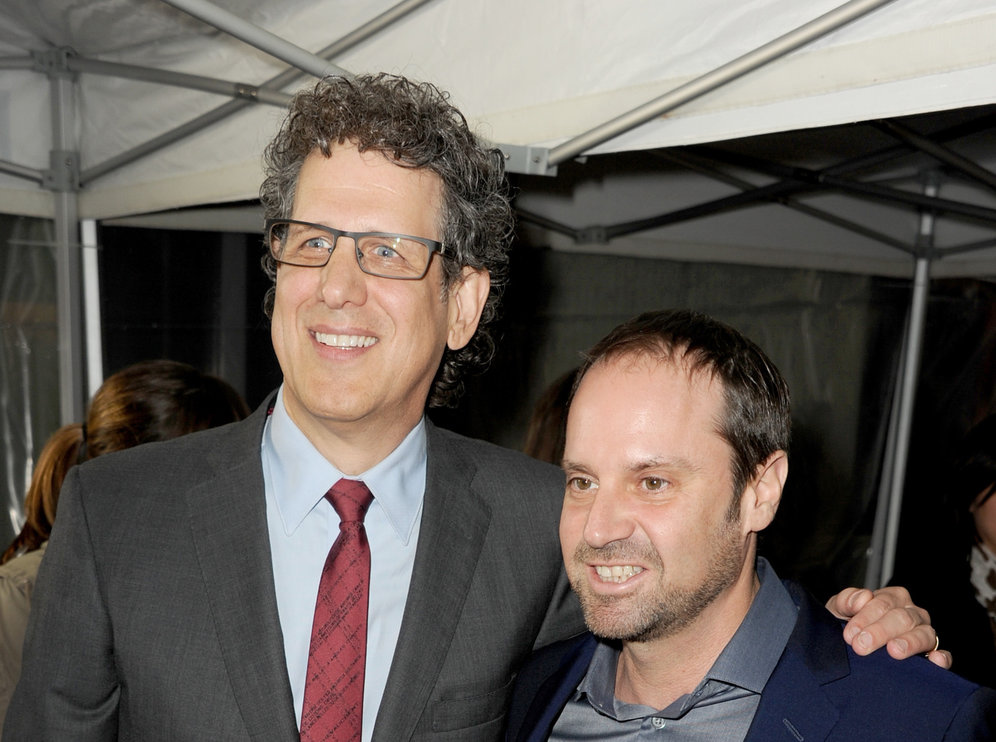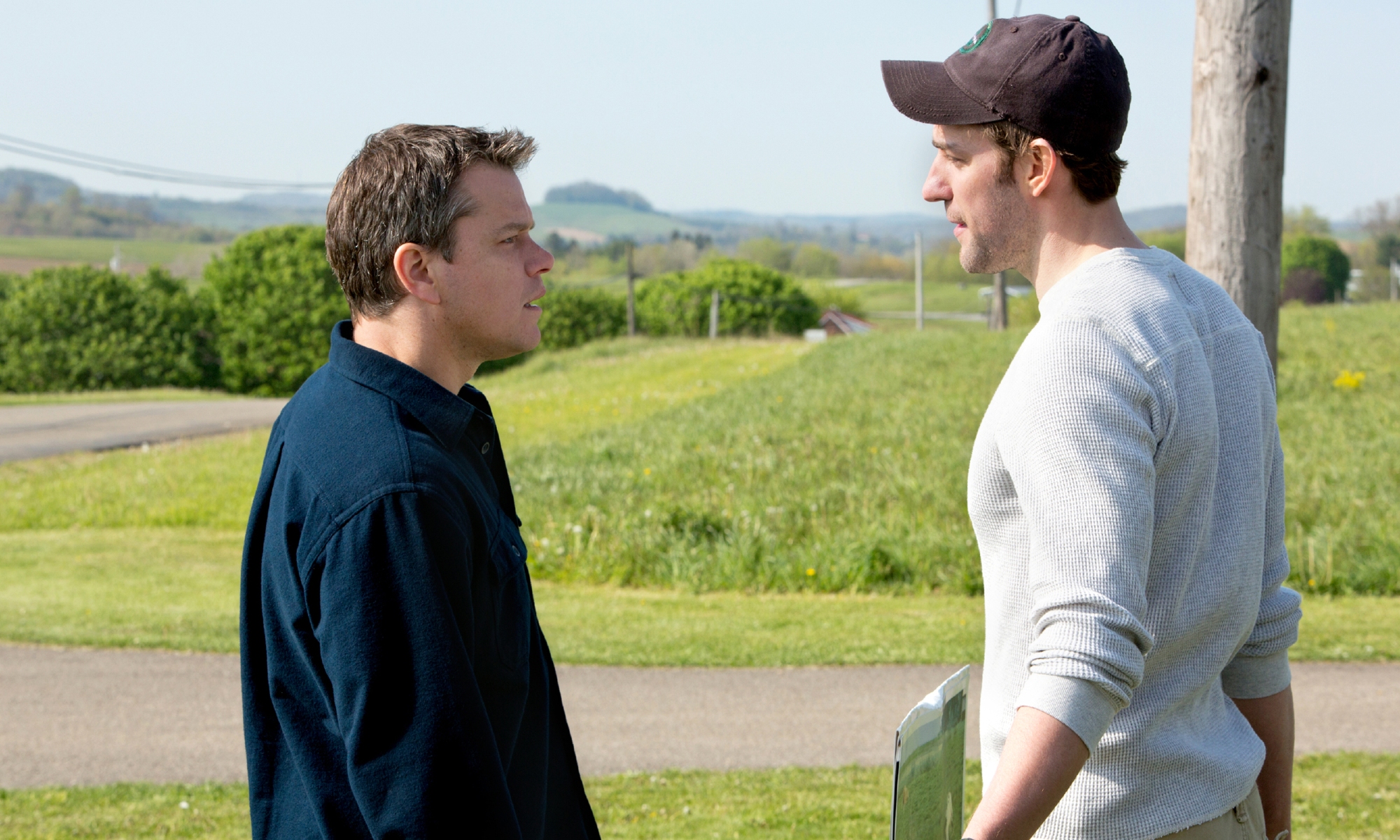Mike Fleming Jr. is Deadline’s film editor. This article appeared in the Dec. 19 issue of AwardsLine.
While it’s typical for film directors to build their careers on their mastery of particular genres and themes, few producers approach their work with a specific angle. But Participant Media’s founder and chairman Jeff Skoll and CEO Jim Berk are taking the road not taken by many studios when it comes to shepherding great cinema: Financing and developing socially conscious films geared toward adults, titles that are bolstered by their advocacy campaigns. Following Skoll’s success as eBay’s first president and full-time employee, Participant enabled his dream to create stories that would enlighten viewers to the globe’s most daunting issues. Berk, the former CEO and president of Hard Rock Café, continues to extend Participant’s financial arm and its brand with TakePart.com, a social-action website. Skoll has served as executive producer on 41 films that have collectively received a total of five Oscars and 22 noms, and this year Participant is back in the awards conversation with three contenders: Lincoln, Promised Land, and The Best Exotic Marigold Hotel.
AWARDSLINE: When Participant gets involved in a movie, what sort of input do you seek out? Do you consider yourselves to be creative producers?
JEFF SKOLL: It depends on the film. In some cases, it’s our idea, it’s our development. In a film like Contagion or Waiting for Superman, they all started with an idea on the blackboard, and at that point you bring in the people. And then there’s some like Lincoln where you really defer to the creative.
JIM BERK: And then there are others like Best Exotic Marigold Hotel or The Help. We were involved in the early days of investing, when the script was in early form, and so we were part of that process all the way through. Where we were able to really play an active role in Lincoln was in positioning the marketplace around ingenious folks that would be useful in putting this film into the zeitgeist.
AWARDSLINE: Jeff, you made your fortune when eBay went public, and then you devoted yourself to using your money as a force for change and exposing global issues. What initially led you to see Hollywood as an effective outlet for something like this?
SKOLL: Well, it started as a kid. I read a lot of books that made the future world seem like a scary place with terrible weapons, diseases, and wars. I wanted to be a writer to tell stories that would get people interested in the issues that affect us all, but I didn’t want to make a living as one, so I decided to get to a point where I could afford to write these stories, so I became an entrepreneur. And lo and behold with eBay, all of a sudden I had far more resources than I ever would have dreamed of, and a light bulb went off that I didn’t necessarily have to write the stories myself—I could find writers to do that, and I could get those stories in film and TV and other forms of media. That’s how Participant was born. And in 2003, I went around L.A. with the idea, trying to understand if anybody had done this before, and if so, how? Most people were pretty skeptical about an outsider coming in to tell stories and make movies in Hollywood. But I would ask everybody that I was talking to, whether it was a writer or a director or an agent or a banker in the film industry, what they were proud of over the course of their career, and invariably, it turned out to be a project about an issue that they cared about.
Alan Horn, who was president of Warner Bros. at the time, understood the concept immediately. We made our first three movies with them: Good Night and Good Luck, Syriana, and North Country. Those films broke through with the idea of what we were trying to do and the fact that I wasn’t just trying to write checks but was trying to make a difference with the films.
AWARDSLINE: Let’s look at the Participant films that are in the Oscar conversation. What swayed you in each case to want to be involved? We’ll start with Promised Land.
BERK: When Matt (Damon) and John (Krasinki’s) draft came into us midway through the process, the setting was about a few issues that were the primary focus of the company. We’ve done four films with Matt—he’s a partner that we really are attracted to. We looked for three things: Commercial reliability, social relevance, and quality. Given the cast and the distributor in place as part of the whole package—and the issues looked impactful to small towns—it became a perfect film for us to be involved in. The issue comes first. There has to be a tangible issue that affects millions today where the film can make a difference for those people. It’s not our role to tell people what to think, but it’s to put these issues into the zeitgeist and give them information to think about it. So when we look at material, the purpose is ultimately a role of peace and sustainability, but it has to be done around empowering people with information and ways to get involved. Whether they choose the left or the right or somewhere in between, we have to trust that they’re fully empowered, and they’ll make the right decisions.
AWARDSLINE: From that same vantage point, what about Lincoln? You’re looking back at a period in history. How did this fit into your criteria to get involved in this?
SKOLL: It’s really about a divided country and leadership to get through it: Civic engagements, dealing with complex issues, and getting to a point where you can actually move things forward. (When) I read the script, and the book beforehand, it made it seem, even a few years ago, (like) such a resonant issue in this country.
BERK: When we had the opportunity to become involved with this, the election and these surrounding issues were really setting this particular story’s tone. It’s pretty unique when you think about how we’re having this conversation today with a lame-duck congress that’s struggling with a very large issue and the president needing to reach out across his own party in order to carve out a deal that would allow the country to move forward. Obviously, it’s not at the same impact in terms of the specific task at hand as maybe President Lincoln saw, but, nevertheless, it’s pretty weird how it’s actually duplicating something that exists today.


